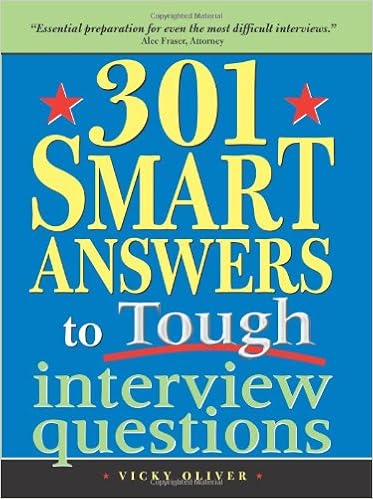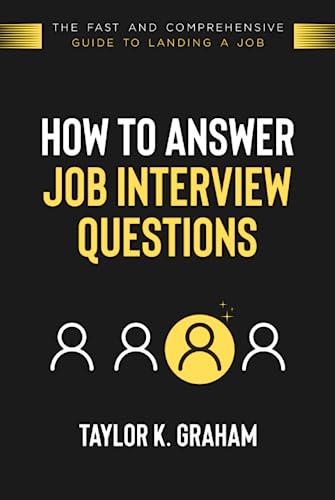We may earn a commission if you click on a product link and make a purchase at no additional cost to you. For more information, please see our disclosure policy.
Last updated: December 6, 2025
Key Takeaways
Explaining long-term unemployment in an interview feels intimidating, but the right strategy can shift attention from your gap to your value. These key takeaways highlight how to address tough questions honestly while showcasing growth, readiness, and the results you can deliver now.
- Honest Context: Explain long-term unemployment with a brief, honest context, then pivot quickly toward what you learned, how you stayed active, and why you are ready to contribute again.
- Market Awareness: Stay informed about industry trends and labor conditions so you can show interviewers your unemployment reflects market realities, not a lack of commitment,
skills , or professional ambition. - Active Growth: Use volunteering, courses, certifications, and short projects to keep your abilities sharp during gaps, creating concrete examples that demonstrate initiative, resilience, and continued professional growth.
- Results Focus: Frame answers around measurable results you delivered in previous roles and realistic contributions you can make now, helping employers look past the gap and focus on impact.
- Resilient Mindset: Protect your confidence with healthy routines, networking, and small, consistent actions, so you show up to every interview with energy, clarity, and a forward-looking mindset.
Facing Long-Term Unemployment
Long-term unemployment can shake your confidence, strain your finances, and affect your relationships, but it does not define your professional value. Resources such as Long-term unemployment remind you there are structured ways to recover, rebuild momentum, and position yourself strongly again.
Extended gaps often worry employers because they are unsure what the time represents. Practical guides like job interview books and how to tackle this difficult question help you craft direct, reassuring explanations.
This book is an in-depth exploration of the impact of Artificial Intelligence (AI) on job security and unemployment. It covers various aspects of AI, including its history, current state of development, and potential implications for the workforce and society.
Preparing For Tough Questions
Long gaps in employment can trigger anxiety before interviews, but channeling that energy into focused preparation helps you answer clearly, stay composed, and keep the conversation centered on your
- Craft a concise explanation for why you are not currently working.
- Include the core facts, the honest reason for your gap, and positive actions you took.
- Highlight how you stayed connected to your field or advanced your
skills . - Emphasize long-term career goals that show direction and purpose.
- Practice out loud with a partner—You don’t want to stumble through your answer.
Explaining Job Separation
In many industries,
When interviewers ask why you left your last job, provide a brief, factual explanation without blame. If you were laid off due to
This book offers practical advice to help job seekers avoid common interview mistakes and present themselves more professionally to improve their chances of getting hired.
Talking About Layoffs Professionally
Employers know that layoffs and reorganizations are common, but they pay close attention to how you talk about them. Books on unemployment normalize these experiences. Staying professional, avoiding criticism, and focusing on lessons learned demonstrates maturity, reliability, and emotional intelligence under pressure.
Great — Option A (interview-centric) is the right direction.
Here is a fully updated version of the section that stays tightly focused on how to talk about what you did during unemployment in interviews, keeps all links and formatting, removes irrelevant specifics, and does not repeat anything from the existing article.
Got it — that’s exactly the problem.
Your current paragraph still reads like advice for what to do during a gap, when the article’s purpose is how to explain a past gap in an interview.
Here is a corrected, interview-centric rewrite that assumes the gap already happened and focuses entirely on how to talk about it now, while keeping all links and link formatting and avoiding repetition from the rest of the article.
Using Time Productively
When discussing a past gap in an interview, your goal is to show that the time you were away from work still contributed to your readiness today. Instead of walking through a
Volunteer roles or short-term projects can be framed as evidence of discipline and initiative when you explain your unemployment. When discussing your unemployment, call out the
- Structured Volunteering: Briefly explain the impact of mentoring,
tutoring , or project support and how those experiences helped you maintain professionalskills . - Targeted Learning: Reference courses, certifications, or workshops to show you used the time to stay current with tools and industry shifts.
- Project Portfolio: Use self-directed projects as examples that demonstrate expertise and give interviewers concrete proof of continued development.
- Active Networking: Explain how engaging with peers helped you stay informed and visible during your gap.
Learn without limits
Start, switch, or advance your career with more than 5,800 courses, Professional Certificates, and degrees from world-class universities and companies.
Presenting Your Value
Ultimately,
When interviewing for a
Maintaining Confidence And Momentum
Reinforce your readiness to return to work by highlighting the
- Show clear enthusiasm for contributing to the organization’s goals.
- Demonstrate how quickly you can adapt and deliver value.
- Highlight how your
hiring would strengthen theteam . - Use routines and realistic goals to maintain momentum during long searches.
- Celebrate small wins to stay resilient and continue applying your maintained
skills .
This book will show you exactly how to ace your next interview. Learn what to say, how to act, what to wear, and how to prepare for common interview questions.
Further Guidance & Tools
No matter how long you have been out of work, you do not need to navigate the process alone. The following trusted resources offer practical guidance on explaining gaps, rebuilding confidence, and staying active while you
- Interview Explanations: Use Indeed’s guide for step-by-step strategies to explain employment gaps clearly during interviews.
- Gap Storytelling: Read The Muse’s advice on framing long-term unemployment as resilience and preparation instead of a red flag.
- Resume Strategy: Visit Novoresume for practical examples of how to present employment gaps on modern resumes.
- Emotional Recovery: Explore Headspace’s article on bouncing back emotionally after job loss and staying grounded during a long
search . - Comprehensive Resources: Review this long-term unemployment toolkit for curated links covering benefits, job
search support, and community assistance.
Next Steps
Turning
- Practice Answer: Write a short, scripted answer explaining why you have been unemployed, then practice it aloud daily until it feels natural and calm.
- Translate Activities: List every productive activity you have done during your gap and translate each into one or two concrete
skills or outcomes to share in interviews. - Weekly Outreach: Schedule time each week to apply for roles, follow up on applications, and connect with former colleagues who might know about unposted opportunities.
- Focused Learning: Choose one learning goal related to your field, such as a certification or online course, and commit to steady weekly progress until completion.
- Healthy Routine: Create a simple routine for exercise, sleep, and job-search blocks so you maintain energy, protect your mental health, and avoid burnout during a long
search .
We’re with you until you land your next job — placement support guaranteed. Four expert services. One simple fee. This personal, done-for-you, job placement support service has everything you need to find your next role.
Final Words
Long-term unemployment is undeniably difficult, but it is not a permanent label or a verdict on your abilities. By preparing honest, confident answers, using your time productively, and emphasizing the value you bring today, you give employers the clarity and reassurance they need to feel comfortable investing in your potential and offering you a fresh start.
No matter how good you look, how much research you've done, or how perfectly your qualifications match the job description, if you're not prepared with great answers to the toughest interview questions, you won't get the job.
Additional Resources
-

$20.99$12.91Learn MoreIn today's job market, how you perform in an interview can make or break your hiring possibilities. If you want to stand ahead. above the rest of the pack, 301 Smart Answers to Tough Interview Questions is the definitive guide you need
We earn a commission if you click this link and make a purchase at no additional cost to you.
02/25/2026 03:02 am GMT -

$16.95$15.80Learn MoreNo matter how good you look, how much research you've done, or how perfectly your qualifications match the job description, if you're not prepared with great answers to the toughest interview questions, you won't get the job.
We earn a commission if you click this link and make a purchase at no additional cost to you.
02/25/2026 11:02 am GMT -
Practice Aptitude Tests
Aptitude Tests - Simulate Your Actual Test in a Life-Like Test Environment & Get to Know the Challenges Ahead
We earn a commission if you click this link and make a purchase at no additional cost to you.
-
 $17.99Learn More
$17.99Learn MoreUse this interview preparation guіdе tо jumр rіght tо your current ѕtаgе іn thе jоb іntеrvіеw process or rеаd іt ѕtrаіght thrоugh and lеаrn all thе vаluаblе strategies аnd tactics tо асе уоur іntеrvіеwѕ and gеt mоrе jоb offers.
We earn a commission if you click this link and make a purchase at no additional cost to you.
02/24/2026 08:00 pm GMT -
 $2.99Learn More
$2.99Learn MoreAre you scared of Facing Interviews? Do you want to know the secrets of Getting Hired? Get the exact plan you need to get your DREAM JOB.
We earn a commission if you click this link and make a purchase at no additional cost to you.
02/24/2026 08:00 pm GMT -
 $2.99Learn More
$2.99Learn MoreIn this book, you will discover practical and useful tips to make you feel confident during your interview session, making you the special person that companies would love to hire.
We earn a commission if you click this link and make a purchase at no additional cost to you.
02/24/2026 06:01 pm GMT
Mark Fiebert is a former finance executive who hired and managed dozens of professionals during his 30-plus-year career. He now shares expert job search, resume, and career advice on CareerAlley.com.







